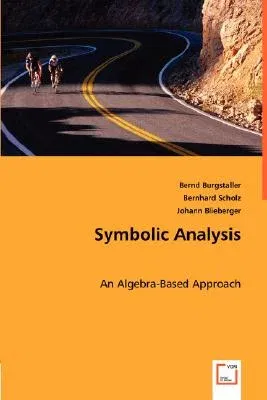Bernd Burgstaller
(Author)Symbolic AnalysisPaperback, 27 March 2008

Qty
1
Turbo
Ships in 2 - 3 days
In Stock
Free Delivery
Cash on Delivery
15 Days
Free Returns
Secure Checkout
Print Length
168 pages
Language
English
Publisher
VDM Verlag Dr. Mueller E.K.
Date Published
27 Mar 2008
ISBN-10
3836481421
ISBN-13
9783836481427
Description
Product Details
Book Format:
Paperback
Country of Origin:
US
Date Published:
27 March 2008
Dimensions:
22.86 x
15.24 x
0.91 cm
ISBN-10:
3836481421
ISBN-13:
9783836481427
Language:
English
Location:
Saarbrucken
Pages:
168
Publisher:
Weight:
231.33 gm

